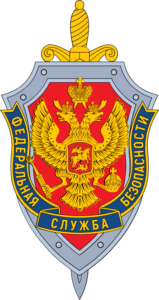
Russian Federal Security Service (FSB)
Acronym Expansion: Federal'naya Sluzhba Bezopasnosti
Creation Date: 1995 04 12
Location of Headquarters: Moscow, Russia
Person in Charge: (as of 2023) Director Aleksandr Bortnikov
Operational Focus: Domestic security, counterintelligence, counterterrorism, and national security matters within Russia.
Organization Motto: "Service to the Law, Serving to the People."
Brief History: Following the dissolution of the Soviet Committee of State Security (KGB) in 1991 11 01, Russian President Boris Yeltsin (born on 1931 02 01) established two key agencies: the Foreign Intelligence Service (SVR) and the Federal Agency of Government Communications and Information (FAPSI). These organizations were formed from specific directorates of the former KGB. Concurrently, the Ministry of Security was inaugurated in 1992 01 01, assuming domestic and border security roles. However, after the constitutional crisis of 1993, this Ministry underwent reorganization, transforming into the Federal Counter-Intelligence Service (FSK) under the leadership of Sergei Stepashin (born on 1952 03 02).
During this period, prior to the primary military actions of the First Chechen War, the FSK operated clandestine missions targeting separatist movements led by Dzhokhar Dudayev (born on 1944 02 15).
The evolution of these entities reflects the post-Soviet restructuring of security agencies in Russia. The demise of the KGB led to the birth of distinct bodies specializing in foreign intelligence (SVR), communication and information (FAPSI), domestic security (Ministry of Security), and eventually counterintelligence (FSK). This transformation aligned with the changing political landscape and the challenges faced in maintaining security and control within Russia, notably evident in the context of separatist movements like those in Chechnya. The reconfiguration of these agencies aimed to adapt to the evolving security threats and demands of the new era following the dissolution of the Soviet Union.
Powers: The FSB's primary role revolves around ensuring internal security, countering espionage, tackling terrorism, and safeguarding national interests within Russia's borders. It conducts investigations, monitors potential threats, and implements security measures to maintain stability and protect state interests.
While the KGB's legacy continues to influence Russia's intelligence operations, the FSB predominantly focuses on domestic security and counterintelligence, distinguishing itself from the SVR's emphasis on foreign intelligence gathering.
Notable Operations:
Operation Lena (2009): The FSB carried out a major operation against a network of Islamist militants in the North Caucasus, targeting insurgents and disrupting their activities in the region.
Anna Chapman Espionage Case (2010) GHOST STORIES: In a high-profile incident, the FSB uncovered and arrested Anna Chapman, a Russian sleeper agent involved in espionage activities in the United States. The case drew significant international attention.
Operation Typhoon (2017): The FSB led an operation against a terrorist cell in Saint Petersburg, thwarting a planned attack and apprehending individuals involved in planning acts of terrorism within Russia.
